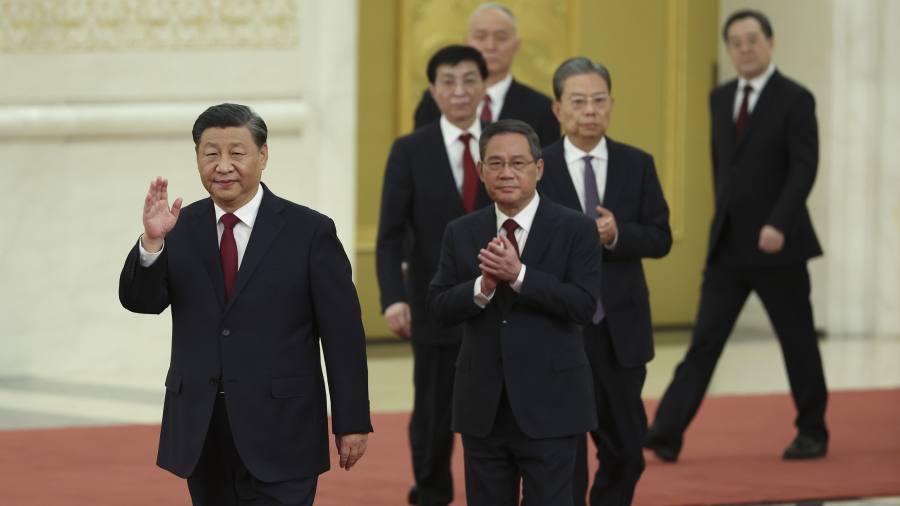
On the final day of the Communist party congress, held every five years in Beijing, China’s president Xi Jinping unveiled a new leadership team that signalled his tightening grip over the military and economic superpower.
For decades the Politburo Standing Committee, the most powerful political body in China, has been a check on the leader’s power through a convention that ensured it was made up politicians of different ages from all factions of the party.
Now, for the first time since former leader Deng Xiaoping’s exit from key party roles in 1989, the elite seven-member group has been stacked with the leader’s own people.
Christopher Beddor, a China expert with Beijing-based research group Gavekal Dragonomics, believes Xi is now on course to remain in power for at least a fourth five-year term starting in 2027, and beyond.
The new Standing Committee is Xi’s “most striking victory”, he said.
Packed with loyalists who owe their careers to Xi, the group led on to the stage on Sunday showed there was no longer a “plausible faction of top officials representing different interests or ideas”. Nor is there an obvious successor to Xi, Beddor said.
Xi’s consolidation of power has also prompted warnings that the world’s most populous country is increasingly fitting the definition of autocracy.
“This is complete, total dominance,” Taisu Zhang, a China expert and professor at Yale University, said on Twitter. “Please don’t ever tell me again that Chinese politics is a meritocracy.”
Xi’s tightening grip comes as his country faces a critical moment on the international stage. Relations with the US, and many western nations, have sunk to historic lows as fears grow over an increasingly militaristic administration which refuses to rule out taking Taiwan by force.
“Xi would like loyalists holding all the levers of power in the Chinese government . . . swift and complete compliance seems to be an important objective with these appointments,” said Victor Shih, professor of Chinese political economy at the University of California, San Diego.
Shih pointed out that Xi faced the domestic political risk of being seen to be responsible for the policy failures of his acolytes. “It always helps to have one or two officials to blame if things go wrong.”
Markets on Monday sounded the alarm over the direction of the world’s second-biggest economy. In Hong Kong, an index of key China stocks tumbled by more than 7 per cent to a 14-year low.
Surrounded by his crew of loyalists, Xi is likely to increase efforts to get China to focus less on growth and more on redistribution and state control, said Andrew Gilholm, head of China analysis at consultancy Control Risks.
However, looking at Xi’s record over the past 10 years in power, the 69-year-old is known for his caution.
“It’s doubtful to say Xi will now suddenly pursue some radical growth-killing campaign against private business and the wealthy, just because Congress outcomes enable it,” Gilholm said, adding: “It’s not clear to me that Xi was only constrained by others and will now go full wrecking ball mode.”
As Xi embarks on a new term in power, shattering China’s two-term limit for its leader, here are the six members beneath the paramount leader:
Additional reporting by Cheng Leng